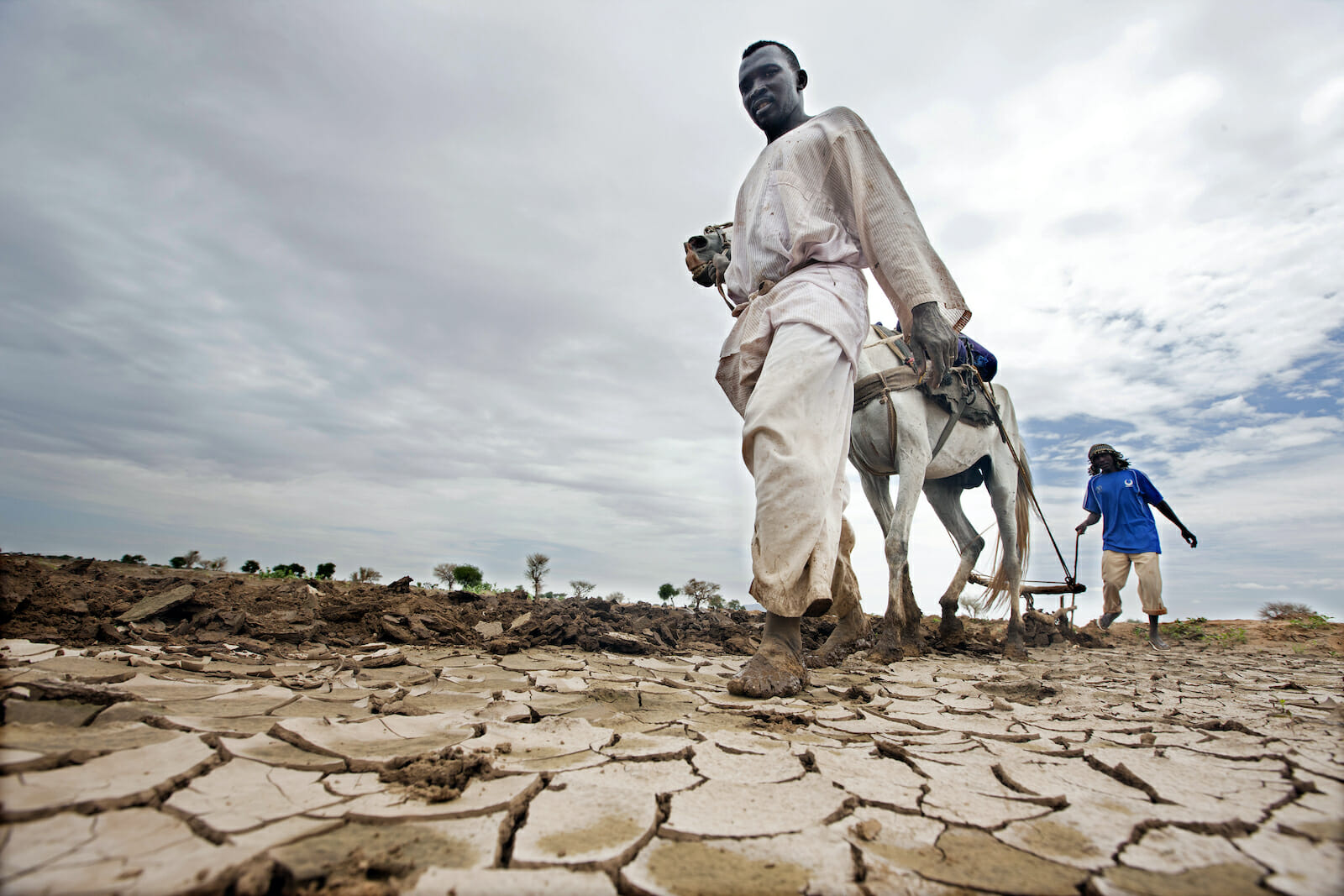
Communal Cooperatives in Africa are Needed post-COVID-19
As Africa faces its third month of COVID-19, it is becoming increasingly apparent that an economic catastrophe is looming for Africa and the globe. Through restrictions, diversion of resources, and other emergency responses, economies across the globe are under duress. The global economy is reportedly facing its worst prognosis since World War II. Africa projects a 1.4% decline in GDP, equivalent to a loss of $29 billion for the entire continent. As the clock ticks, the worst-case scenario is unfolding – pointing to negative GDP growth in 2020, falling as low as -5.1%. This situation will likely push the region into its first economic recession in 25 years. These losses translate to increasing unemployment where an estimated 50% of all jobs in Africa could be lost, translating to dissipating income and enterprise opportunities for the continent’s 1.2 billion people. A suffering economy will push the continent further up the vulnerability scale.
These economic ramifications are exposing first, the fragilities, and second, the often-ignored realities of African economies which hinge largely on the actions of the informal sector. The informal economy cumulatively employs over 80% of Africa’s population. Revisiting these aspects provides an opportunity for the continent to rebuild fool-proof post-COVID-19 economies, addressing fundamentals whose importance has been spectacularly exposed by this crisis.
To begin with, ignored realities, the closure of marketplaces exposes the important role the informal sector holds in providing fundamental goods and services that keep households and the economy stable. The informal sector affects all of Africa’s demographics. For the urban middle-class, when the routine trip to the market to replenish groceries can no longer happen because of market closures, the ability for local grocery vendors, known as mama mboga’s, to keep households nourished decreases. When a mama mboga who trades less than $150 daily by selling her produce to middle-class buyers can no longer make the much-needed daily sales to sustain her, her family and replenish her business, she stares at a bleak future- the likelihood of losing her business for good. These impacts cascade down the supply chain, impacting the transporter and the farm. Diminished demand for farm products reveals a likelihood that ready harvests will be lost as well.
Secondly, we cannot ignore fragilities. One key lesson African governments should take note of as they rebuild their economies is the tendency for countries to prioritize their own during crunch times. While Africa needs an estimated $100 billion in emergency response to buffer its economies and support the population at this hour of need, every country in the globe is primarily focused on adhering to the needs of their own citizens and economies. They have done so with multiple rounds of stimulus packages running into the trillions of dollars, some of which extend up to 20% of their GDP. As a result, international aid has taken a back seat in the face of domestic crises. Given the nature of this pandemic forcing governments to prioritize their own, no country stands ready to “bailout” Africa’s economies that may be at an even higher risk given their very low base. The absence of foreign salvation is a lesson to Africa that the continent can only bet on what it has at hand.
Re-building Better and Stronger: Harnessing the Power of Communal Cooperatives in Africa
Rebuilding a stronger and more sustainable economy requires a strategic approach. Two key aspects stand out if Africa is to rebuild better: First, the continent must rebuild from the foundation – which is the informal sector. Second, in doing so, the region must leverage financing structures familiar to the informal sector. Up to 90% in Africa inadvertently engaged in the informal sector through transactions in cash and in part, the convenience of mobile money. Formal financial structures such as bank accounts, tax brackets, etc., are out of their reach. However, they are accounted for in cooperatives, which exist in some form even at the lowest socioeconomic level.
The structures of cooperatives are nominally different worldwide but exist in nearly every community level in every country. Cooperatives are weaved into the diverse cultures in the continent and draw on critical values that are fundamental to development– selflessness, trust, and co-creation of value. Community cooperatives are proven to work given they are accessible and relevant to the diverse financing needs of the informal sector and have withstood the test of time. They build on trust which is the social capital that many depend on for progress in communities. Leveraging on this embedded structure will require reorganizing and repurposing cooperatives as follows:
Transition and Formalise Cooperatives
It is imperative to formalise local, grassroots cooperatives from the traditional basis — where they are recognized as vehicles of social financing — into specially purposed vehicles for investment and enterprise financing in the informal sector. This informal sector includes individuals who can through such cooperatives, be part of the enterprise approach. As an example, existing cooperatives holding member deposits, through their internal policies, can prioritise financing members venturing into clean energy powered value addition and go further to support such members with additional market opportunities to enhance their chances of success. Through this process, there is an incentive for more members to venture into this enterprise.
The cassava buying cooperative in Cameroon, Socooproman, provides an example of how such a transition can occur. Socooproman introduced a service of buying off members’ cassava, processing it into flour & gari, then selling at a higher premium. Because of a ready market, members of this cooperative retreated to their local merry-go-round’s called jangui, which they use to pool resources for domestic use. This time, they were pooling resources to finance an enterprise action that would acquire inputs and solar dryers to stabilise the supply chain of quality cassava delivered to Socooproman. A key benefit of these jangui is that unlike formal loans that are secured with fungible assets, jangui loans are secured by members’ social capital. A member’s reputation in the village as a trustworthy person who keeps their word is what guarantees their loan.
Through the promise of a ready market in Socooproman, local jangui’s transitioned from solely focusing on social aspects to financing asset acquisition for enterprise investments. Such linkages that tap market opportunities, ultimately elevating local cooperatives beyond financing social aspects, are how local cooperatives in Africa can be transitioned to strengthen the economy.
Tie Financing to Informal Sector Actions in Catalytic Areas
While informal sector actions emanate from every sector of the economy, sustainable nature-based agriculture which protects ecosystems and clean energy stand out as the most catalytic and foundational. This industry is not only critical to environmental enhancement and protection, but also in catalysing small youth enterprises across diverse sectors.
Agro-value addition is a source of informal sector opportunities in clean energy – a climate action solution – through powering value addition without piling emissions that destroy the environment, and through linking produce to markets and to final consumers, among others. Agriculture also stands out as most inclusive by virtue of providing direct livelihoods for over 60% of Africa’s population. In addition, agriculture indirectly generates income opportunities among other sectors through forward and backward supply and value chain linkages. Cooperatives should, therefore, be tied to financing enterprises in these foundational climate action derivative areas and later applied to other industries.
Leverage Cooperatives as the Structure for Tracing Impact of Development
Countries’ domestic budgets need inclusive accountability mechanisms beyond the “dashboards” of resource allocations to ministries. Tracing development through the budgeting process alone goes only halfway as it fails to account for the actual impact made on the ground in terms of lifting populations out of poverty. However, channeling development through the structure of special-purpose communal cooperatives offers a low-risk mechanism. National budgets can be accounted for using indicators that are representative of tangible financial return on investment. Accountability can manifest in enterprises generating profitability, delivering value, and thus impacting communities. As an example, a portion of national budgets can be set aside as financial incentives to cooperatives. Incentives may take form as indemnities and financial risk guarantees dedicated to encouraging cooperatives to support youth climate action enterprises as well as finance decentralisation of clean energy solutions to power agro-value addition. This provides a basis for multiple enterprise opportunities, while maintaining the initial sum invested in the cooperative as a guarantee that is not consumed unless a financial risk occurs. Countries should adopt such systems considering external development assistance is absorbed into the economy through cooperative mechanisms which focus on communities where the need is high, yet the impact can be wide-reaching.
Throughout COVID-19, the slowdown of demand leading to a closure of markets means perishables rot away, resulting in lost stock and future revenue such stock would generate. But, such shocks can be buffered through value-added solutions. For example, decentralizing solar dryers to farmers in local markets, to enable them to dehydrate and preserve their harvest that remains unsold at the end of day and sell when demand peaks, has proven able to not only cut postharvest losses but increase earnings up to 30 times. This method also enhances incomes by creating long term, small-scale manufacturing opportunities for those who fabricate these dryers, especially youth entrepreneurs. Amidst the economic struggle of COVID-19, cooperatives should be leveraged from an enterprising approach where the model moves from solely social financing to including investment financing in areas that bring high returns on investment. A high return on investment encompasses the entire agro-value chain. The stimulus packages being fronted across the continent should be channeled through communal cooperatives but with a focus on driving the agro-value chain in ways that work with the environment and not against the environment. The target should be cushioning cooperatives against liquidity crunches, hence ensuring that delayed payments that may arise out of the economic slow-down do not render them insolvent and close them down.
Leverage Cooperatives as the Structure for Accountability
Tracking and tracing informal sector actors is not an easy endeavour as they are not registered in formal systems. Many of them do not have bank accounts, credit cards, or other means of economic registration. To ensure easy reach, a common communal framework should be used. Communal cooperatives offer a strong community grounded space and area of accountability. Take, for example, the development of solar dryers which are fabricated by the youth. If they work under the accountability framework of these cooperatives, managers will be able to trace what employees do, where they assemble these dryers, which farmers are getting them, and what farmers are drying with these solar dryers. Using this approach, the ability to audit the impact of financing and actions that impacts many lives at the community level where it matters becomes achievable. This approach further ensures that development budgets go directly into the hands of those it is intended for, as opposed to the outcomes of traditional tendering channels of funding for social development projects. Using the traditional delivery approach, established corporates, controlled by the few in formal sectors, are the direct beneficiaries.
Local Governance
Arguably, an unfortunate truth about development is that we do not embark on development projects for the greater community; we often embark on them for ourselves. We facilitate and organize people to perform such projects, thus implicitly, yet positively, affecting the economy. The specially purposed communal cooperatives offer a mechanism to such facilitation. Local governments and institutions can be given the responsibility of overseeing such cooperatives in their respective locales on behalf of the national government.
The economic challenges that continue to peak even as the medical crisis phase of the COVID-19 wanes will only plunge Africa into a deeper crisis. Africa’s climate vulnerability amidst a workforce and geopolitical position geared for agriculture coupled with weak economic fundamentals will exacerbate COVID consequences. The continent has a chance to rebuild stronger post-COVID-19 economies by leveraging on its vast informal sector. This rebuilding demands that everyone stand on their own feet. The structure of communal cooperatives offer a ready, proven, accountable, representative, and low-risk framework on which this rebuilding can occur. Leveraging on communal cooperatives will be a game-changer in the lives of the informal sector who drive over 80% of the economies in sub-Saharan Africa. Anything less than this will be just pure lip service.
The views expressed in this article are those of the authors alone and do not necessarily reflect those of any institutions with which the authors are associated.


